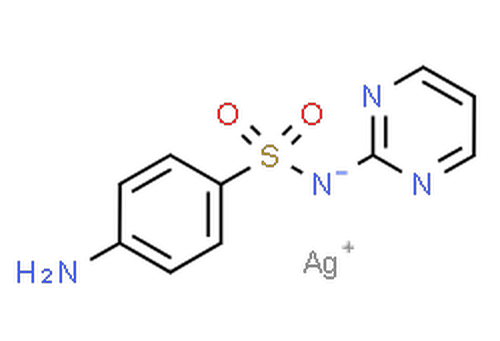Silver Sulfadiazine is a sulfa antibiotic. This Active Pharmaceutical Ingredient (API) is used in the making of ointment or lotion for treating a burn, minor bacterial infection on the skin and skin ulcers. Its main function is to cease bacterial growth to reduce skin, blood, and tissue infection. The topical route of administration is advised in maximum cases. However, intravenous treatment is prescribed to those with a severe burn. The finished product or silver sulfadiazine cream can be applied on partially thick or full-thicknessburns, which is medically denoted as a second degree or third degree burn (1).
Formula: C10H9AgN4O2S
IUPAC ID: Silver [(4-aminophenyl)sulfonyl](pyrimidin-2-yl)azanide
Melting point: 285 °C.
It is advisable to keep it in room temperature 20°-30° C. If the color gets darkened, then discard the medicine.

Table of Contents
How to Determine the Degree of Burn?
Depending on the severity burn can be classified intofour categories:
- First-Degree Burn – This can be referred to as a superficial burn. It affects only the superficial or epidermis layer of the skin. The site of the burn becomes red with little pain and dryness. However, no blisters are formed. No long term damage in tissue is found here, though skin color alters up to a certain extent. It can be treated with skincare products. For some extreme cases, antibiotics can also be used.
- Second-Degree Burn – In the mentioned condition the epidermis and dermis, i.e., the first and second layers of skin burns. The burn site gets swollen with reddening and blisters. It also causes pain.Second-degree burn recovery is faster among the other types. An antibiotic is highly recommended to treat such burns.
- Third-Degree Burn – Crossing the epidermis and dermis when the burn reaches the skin’s innermost layer including subcutaneous tissues it is referred to as third-degree burn. The burn site looks charred, white or, blackened. Thethird-degree burn recovery needs intensive care to cure injuries or wounds.
- Fourth-Degree Burn – This is the most destructive among its types. It burns out the deeper lined tissues, muscles, and bones. It even destroys the nerve endings hence there remains no sensation (2). After intensive and intravenous treatment, replacement of fluid and skin grafting or use of synthetic skin is required.
Mechanism of Action of Silver Sulfadiazine
When burn wounds and blisters get exposed, bacteria grow over it, which may lead to sepsis.Dihydropteroate synthase is responsible for the folic acid formation and folic acid fosters bacterial DNA synthesis. It is required to cease the factor responsible for bacterial growth in order to achieve early recovery. Silver Sulfadiazine inhibits the dihydropteroate synthase. Hence, bacterial growth will not occur in the burn area and theburn wound will heal.
How does the Antibiotic get Absorbed by the Body?
After applying the ointment or cream made of Silver Sulfadiazineon the skin,the antibiotic gets absorbed by the body fluids and tissues. Post absorption, it gets converted into free sulfadiazine by the protein and the sulfhydryl group. Approximately, 10% of sulfadiazine and 1% of free silver gets absorbed by the patient’s body. The serum sulfa concentration reaches the therapeutic level of 8-12 mcg/ml. The therapeutic level is the range up to which the drug can work on the body (4).
How to Apply the Ointment on a Burn Wound?
The Silver Sulfadiazine cream usesare only for the skin, therefore, don’t let it enter your eyes, nose, mouth, or genital area.
While treating any wound related to burn, always use the sterile technique, whichisthe usageof sterile application tools or sterile gloves.
The frequency of application must be as advised by the doctor. In case of a second or third degree burn treatment, 1 to 2 time’s daily applicationis generally prescribed. Apply the cream on the wound covering a layer of one-sixteenth of an inch, i.e., 1-2 mm. The wound must always be covered with cream. Dress the wound as advised by the doctor. Apply the ointment immediately after washing with water or hydrotherapy. In case the cream rubs off the burn wound, reapply instantly(3).
Which Bacteria are Killed bySSD?
- Staphylococcus aureus.
- epidermidis.
- Beta-hemolytic streptococci.
- Klebsiella.
- Escherichia coli.
- Enterobacter (including E. cloacae).
- Citrobacter.
- Proteus.
- Pseudomonas.
- Morganella morganii.
- Providencia.
- Serratia.
- Candida albicans.
Dosage
Adults, elderly, adolescents, children, and infants of more than two years of age may apply twice daily. Neonates are not recommended to use this as they may develop kernicterus.
Consult your doctor for dosage details specific to each individual.
Drug Interaction
Ifapatient is usingany of the following drugs, then they must not use Silver Sulfadiazine:
- Collagenase.
- Sulfacetamide.
- Sulfacetamide; Sulfur.
Contraindications
Patients with the following health disorders must not use this antibiotic ointment:
- Sulfonamide hypersensitive.
- Hepatic disease.
- Renal disease or renal impairment.
- Hematological disease.
- G6PD deficiency.
- Porphyria.
Precaution
Pregnant women, breastfeeding women, and neonates are advised to not take an intramuscular injection or topical cream of Silver Sulfadiazine.
The medication related to burn wounds must be continued until the skinis grafted. Make sure to use at the same time of the day in order to avoid missing a dosage. Maintain hygiene while treating burn wounds.Inform your doctor if the condition persists or worsens.
Disclaimer:
Anzen Exports’ blog posts are based just on our research from cited websites. To be best informed, we advise consulting a doctor about an ingredient or medicine prior to taking it.
Source:
- WebMD
Website – https://www.webmd.com/drugs/2/drug-13530/silver-sulfadiazine-topical/details
- University of Rochester Medical Center
- WebMD
Website – webmd.com/drugs/2/drug-13530/silver-sulfadiazine-topical/details
- Prescribers’ Digital Reference
Website – https://www.pdr.net/drug-summary/Silvadene-silver-sulfadiazine-2781#:~:text=MECHANISM%20OF%20ACTION&text=Silver%20sulfadiazine%20disrupts%20bacteria%20by,positive%20and%20gram%2Dnegative%20organisms.
